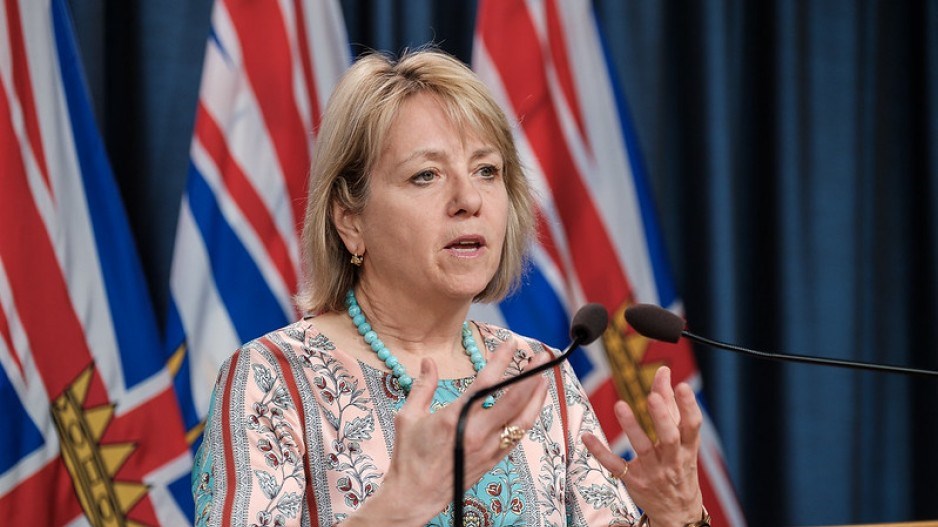For the first time in weeks, B.C. has not recorded a death related to COVID-19 within a 24-hour period, B.C.'s provincial health officer, Bonnie Henry, told media May 26.
That keeps the death toll from the virus that has spawned a global pandemic at 161 people.
There were 11 new infections identified in the past 24 hours, for a total of 2,541 people since the virus first appeared in the province in late January. Only 258 of those infected people are still battling their illness, as 2,122 people, or about 83.5% of those infected, have fully recovered.
There are 37 people in hospital with COVID-19, including seven who are in intensive care units. The decline in the number of people in hospital with the disease has prompted the province to resume many scheduled surgeries that had been postponed because of the pandemic. The occupancy rate in hospitals province-wide is now around 69%, with intensive care units being at around 50% capacity, said Health Minister Adrian Dix.
The breakdown of all COVID-19 infections by health region is:
• 897 in Â鶹´«Ã½Ó³»Coastal Health;
• 1,261 in Fraser Health;
• 127 in Island Health;
• 194 in Interior Health; and
• 62 in Northern Health.
There are 14 seniors' living facilities and one acute care facility where there are still outbreaks. An outbreak at Richmond Hospital is declared to be over.
The province is also monitoring at least three correctional facilities. The facility that had the first and largest outbreak of COVID-19 is Mission Institution, and Henry clarified on May 26 that this outbreak has not yet been declared to be over because the facility has not yet gone through two 14-day incubation periods without recording new infections. The other two facilities that the province is monitoring are Matsqui Institution and Mountain Institution.
"There was an individual who had been at Matsqui [Institution] and transferred to Mountain [Institution,] and had developed symptoms and tested positive," Henry said. "The investigation is ongoing about where he may have acquired this infection, and he had been in a number of other institutions, including a couple of provincial correctional facilities, so there is a coordinated response going on."
The province has entered what it calls Phase 2 of the pandemic – a phase when various businesses, such as hair salons, nail bars and dine-in restaurants are able to reopen.
Henry said that she is aware that these openings are causing anxiety for many.
"Slowly and thoughtfully we are increasing our activities and I understand that with this transition, there comes a lot of anxiety, and some uncertainty and some frustration," she said.
"For some that means frustration that we are moving too slowly, and for others frustration that we are moving too fast. It is a balance and I know that is very hard to achieve. It has been a learning experience for all of us in the past week, trying to find that right balance."



